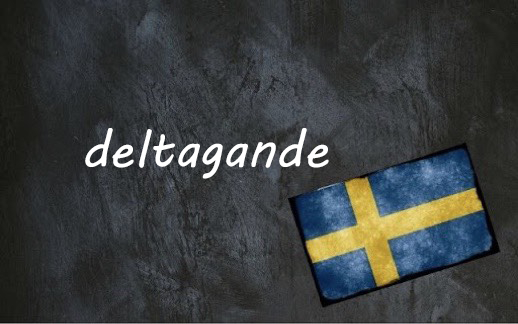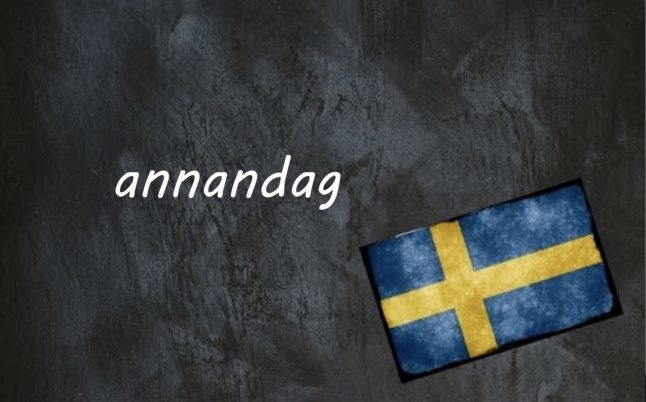Deltagande is either one or more participants in an activity, or an expression of participation in someone’s mourning, in other words, condolences.
Originally from delta (not to be confused with the Greek letter), which is made up of the words del, meaning ‘part’, and ta, meaning ‘to take – to partake, or take part.
It is said that Swedes love lists, and that Swedes like to be nice. En deltagare is ‘a participant’, a partaker, if you will, and so one of the many types of lists that you will often encounter is a deltagarlista, a list of participants. As for the niceness, if you are in a race in Sweden, like a half marathon for instance, you will notice that often everyone gets a medal just for participating. Alla deltagande får en medalj, ‘All participants get a medal.’
You can also ta del av något, as in ‘to partake in something’, which usually refers to information. Har du tagit del av pm:et som skickades ut? ‘Have you read the memo that was sent out?’. You will notice that the way to express this is with the same word broken up into parts. Delta… ta del.
Regretfully choice for the word of the day was not arbitrary or for some funny insight into Swedish culture, but because it is a day of sorrow for many. Today many around the world mourn the passing of their monarch, Queen Elizabeth II.
In Swedish a formal way of expressing your condolences would be att visa sitt deltagande, literally ‘to show one’s participation’, which really means ‘to show one’s participation in the mourning’. Here is a tweet by the Ambassador of the United Kingdom to Sweden.
Det är med djup sorg som jag mottagit nyheten om Hennes Majestät Drottning Elizabeths bortgång. Jag vill varmt tacka för deltagandet som Sverige uttryckt. Det vittnar om den tillgivenhet och beundran som Drottningen inspirerade hos så många. Mina tankar är med kungafamiljen. pic.twitter.com/16DeZ7MMIS
— Judith Gough (@JudithMGough) September 8, 2022
As you can see, Ambassador Gough uses deltagande in thanking Sweden for the condolences offered. Jag vill varmt tacka för deltagandet som Sverige uttryckt. Literally ‘I want to give warm thanks for the participation that Sweden has expressed’, of course meaning she wants to give thanks for the condolences offered by the Swedish people and their representatives.
In closing, I offer my own condolences to the Queen’s family and her subjects as one would in a more formal Swedish. Tillåt mig att framföra mina kondoleanser till er med anledning av er drottnings bortgång. ‘Allow me to convey my condolences for the passing of your Queen.’
May she rest in peace.
Example sentences:
Med djupt deltagande i er stora sorg.
My deepest sympathies for your great sorrow.
Hur många deltagande har ni i nuläget?
How many participants do you have so far?
Villa, Volvo, Vovve: The Local’s Word Guide to Swedish Life, written by The Local’s journalists, is now available to order. Head to lysforlag.com/vvv to read more about it. It is also possible to buy your copy from Amazon US, Amazon UK, Bokus or Adlibris.



 Please whitelist us to continue reading.
Please whitelist us to continue reading.
Member comments